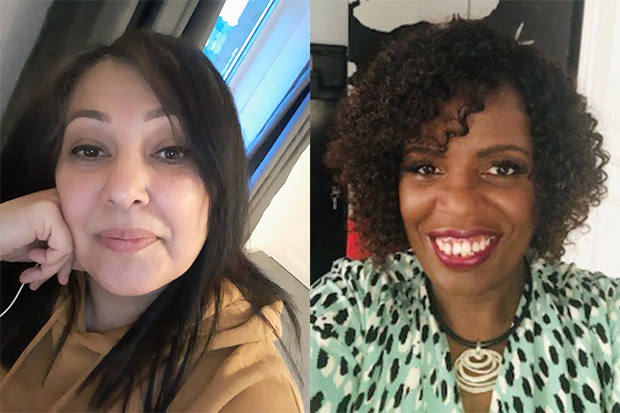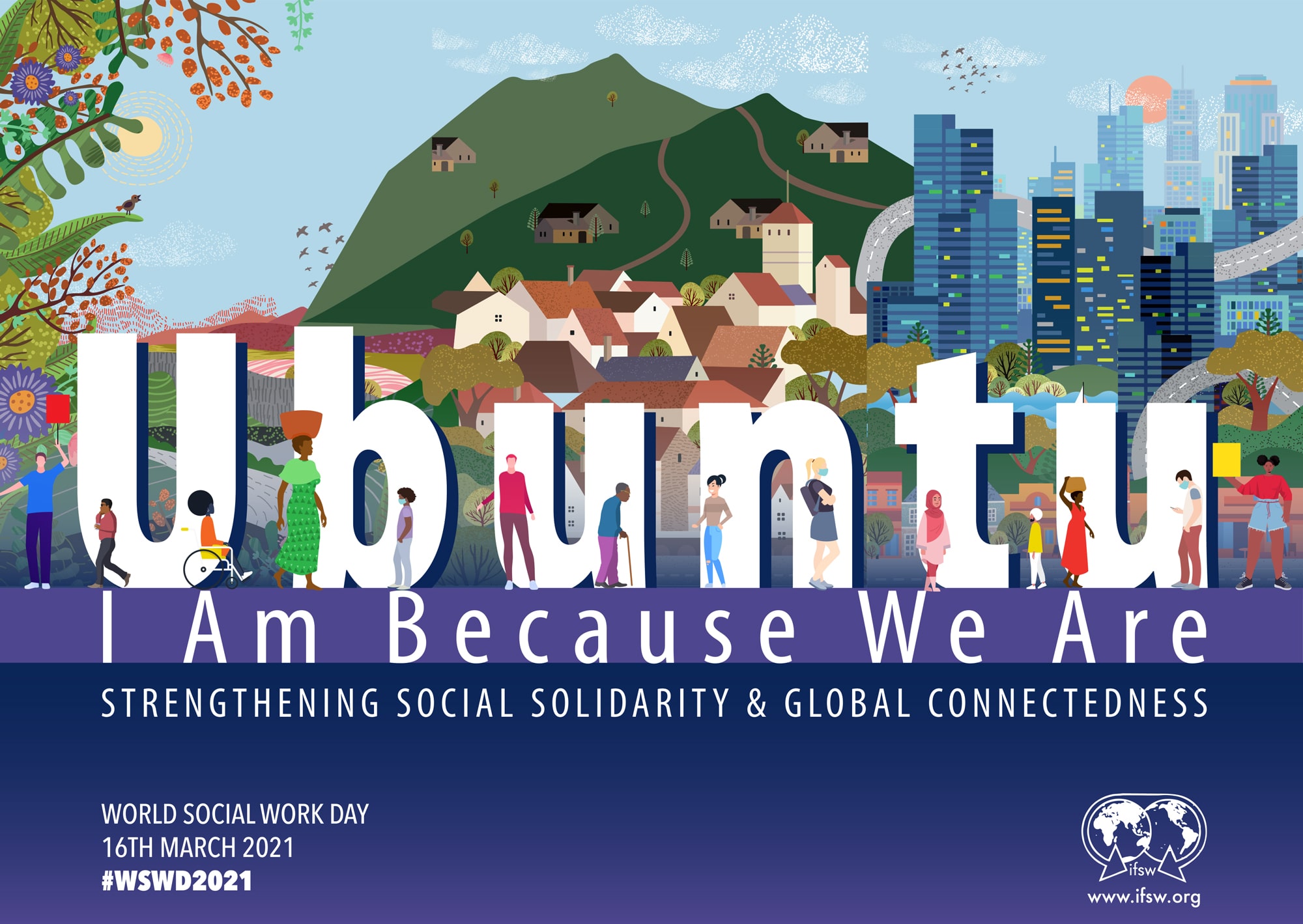Farrah Khan MBE and Sharon Davidson are co-chairs of the Principal Child and Family Social Worker (PCFSW) Network. On World Social Work Day, they discuss the shared values that inspired them to become social workers, reflecting on the power of the relationships they have built with families and how they continue to be motivated years later.

What inspired you to become a social worker?
Sharon: I qualified as a social worker in 1992 and have been practising for 29 years. I started off working as a nursery officer during the day, and a youth worker in the evening. Through those roles, I worked with social workers fairly often.
I remember a particular case with a child in my nursery who was on a child protection plan, or the child protection register as it called then. One day, this child’s mum came to pick her up from nursery drunk. Given ongoing concerns around the mother’s drinking, the local authority (LA) decided the risks were too high. The child would need to become looked after and placed in foster care pending further assessments.
What struck me was not the decision to accommodate this 4-year-old black child but the way this was communicated to her. A social worker approached and standing over her, he told her they were taking her in to care and she might see her mummy tomorrow. I was appalled by this, so I intervened and helped him to speak to the child. I just felt I could do better than this!
That thought kept coming back to me, in different ways. The importance of a social worker is really understanding and knowing the child, young person and their families, then using that understanding to work out the best way to speak to them and communicate the hard and difficult things.
Farrah: I qualified in 2002. At the time I was a single mum with two children, working in a support role in the voluntary sector. I was passionate about helping women and had a real interest in working with women who had experienced domestic violence.
I originally qualified as a nursery nurse and I often worked with social workers. Like Sharon, some social workers left a good impression on me, some not so much. As my children grew up, I went to university. I was the first in my family to go and it was daunting! I remember a friend of mine forced me to go to a Leeds Metropolitan University open day, I met the course tutor for the diploma in social work and it was a great feeling being there.
Can you share a memorable moment in your career?
Sharon: I wanted to be a social worker that made a difference in reality.
My first ever case was a child in need case which quickly changed to child protection and then care proceedings. I was in court before I knew it, which wouldn’t happen nowadays - I hope!
The bit that’s stuck with me for my whole career was, although the child couldn’t stay with their mother, she was so graceful in her understanding. Her message to me was, “I’m instilling my child in your care now”. Her own story was tragic, the loss she experienced through her migration had impacted her parenting and lifestyle choices.
She trusted me to make the right decisions for her child and family and was thanking me for putting her child first. I’m always thinking about the weight of responsibility we as social workers have to balance in the decisions we make. Keeping the at the child front and centre of everything we do is essential.
Farrah: There will always be individual young people who pop into your head for life. I remember seeing a young person that I used to work with, hearing about the positives of their life and how they’d moved forward was so rewarding. I also met someone else who’s now become a social worker! They got in touch via social media.
The challenges are there - you can feel the pressure, guilt and pain that is caused when a family is broken apart, but the moments you celebrate are the ones where the family stays together.
How do you stay motivated?
Sharon: When I moved to a management position, I made a conscious effort that I would still be motivated by families and “doing right by children”.
My Jamaican parents instilled a sense in my siblings and me that we have opportunities we must take advantage of, but equally, we must be true to ourselves and our culture. I was born in the UK but what I have seen and experienced has been different because of the colour of my skin. This has been significant in my work and how I support colleagues, so they can remain motivated to do better for children and families.
Farrah: Something that motivates me and inspires me is the belief in working hard that comes from generations of migrants. I was raised with those values.
The inequalities I faced in my life have led to my interest in practice improvement. I also believe that, if you want to change things, you have to drive that change. We need to see more diversity in leadership and influential roles because strong leadership can influence practice and improvements.
From another perspective, my grandson motivates me to do my work – I want the world to look different for him.
What is your ambition for social work?

Sharon: As co-chairs of the Principal Social Worker Network, I’m excited by the opportunity to influence practice as an individual and at a national level with Farrah. In this role, we’re actively able to make a difference and with genuine intent. After 29 years, I still get over-excited about the possibilities.
My wider ambition for social work is that we don’t just let the experience of 2020 go ignored. In the recovery to the pandemic, we need to work within the Principal Social Worker (PSW) Network and across the sector to reshape how we look at anti-racism and anti-racist policies. The PSW Network will help to springboard these issues but all social workers have an important role to play.
World Social Work Day 2021 is exciting. It’s a great way to raise the profile of social workers and highlight the importance of our work. It should be treated as an annual opportunity to acknowledge, promote and support the profession.
Farrah: Blue-sky thinking? I’d like PCFSWs to have the same status as Adult PSWs.
Like Sharon, I’m determined that the PSW Network continues to become more diverse and drives practice that tackles racism and champions equality.
World Social Work Day 2021 has reminded us of the importance of the profession and its history. As we come out of COVID-19 (coronavirus), we need to build bridges and overcome inequalities, and celebrate social workers’ part in this. Social workers have helped hold society together through this crisis, as well as their own families and I am very proud to be one.
To read about the partnership Sharon and Farrah have forged as co-chairs of the PSW Network and their leadership styles, read their blog: Letting go of anxiety and bringing our own leadership styles to the forefront